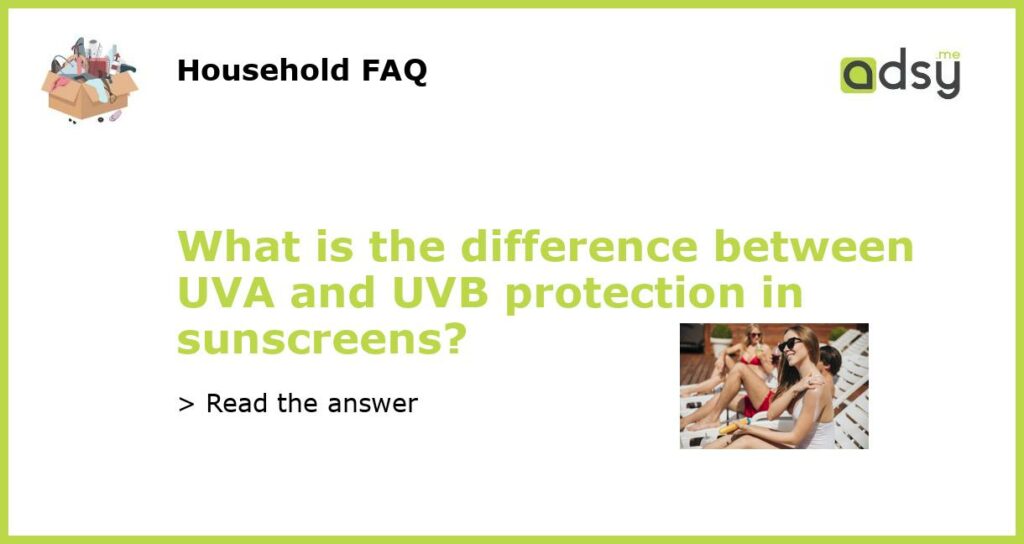What is the difference between UVA and UVB protection in sunscreens?
When it comes to protecting our skin from the harmful effects of the sun, sunscreen is a must. But with so many options on the market, it can be confusing to understand the differences between UVA and UVB protection. In this article, we will explore the distinctions between these two types of ultraviolet rays and the importance of using a broad-spectrum sunscreen.
UVA vs. UVB: Understanding the Basics
The sun emits different types of ultraviolet rays, including UVA and UVB. UVA rays have longer wavelengths and can penetrate deeper into the skin. These rays are present year-round and are responsible for premature skin aging, wrinkles, and sunspots. On the other hand, UVB rays have shorter wavelengths and primarily affect the outer layer of the skin, causing sunburns and contributing to the development of skin cancer. Both UVA and UVB rays can be damaging, which is why it’s essential to protect your skin from both.
The Importance of Broad-Spectrum Protection
To ensure comprehensive protection against both UVA and UVB rays, it is crucial to use a broad-spectrum sunscreen. Broad-spectrum sunscreens are specifically formulated to block both types of ultraviolet rays. They often contain a combination of active ingredients, such as zinc oxide and titanium dioxide, that work together to provide broad-spectrum protection. By using a broad-spectrum sunscreen, you can shield your skin from the full spectrum of ultraviolet rays and reduce the risk of sunburn, premature aging, and skin cancer.
UVA Protection: Looking Beyond Sunburns
While many people associate sunburns with UVB rays, it is important to note that UVA rays can be equally damaging, if not more so. UVA rays can penetrate through clouds and glass, meaning that your skin is exposed to them even on cloudy or indoor days. These rays can cause significant damage to the skin’s elastic tissue and collagen, leading to accelerated aging, wrinkles, and the development of skin cancer. Therefore, it is crucial to choose a sunscreen that provides broad-spectrum protection against UVA rays, not just UVB.
UVB Protection: Preventing Sunburns and Skin Cancer
UVB rays are the primary cause of sunburns and play a significant role in the development of skin cancer. These rays are more intense during the summer months and at higher altitudes, making it essential to protect your skin when spending time outdoors. A sunscreen with a high sun protection factor (SPF) can help prevent UVB rays from damaging the outer layer of your skin, reducing the risk of sunburns and skin cancer. It is important to note that SPF only measures protection against UVB rays, so it is crucial to choose a broad-spectrum sunscreen for comprehensive protection.






